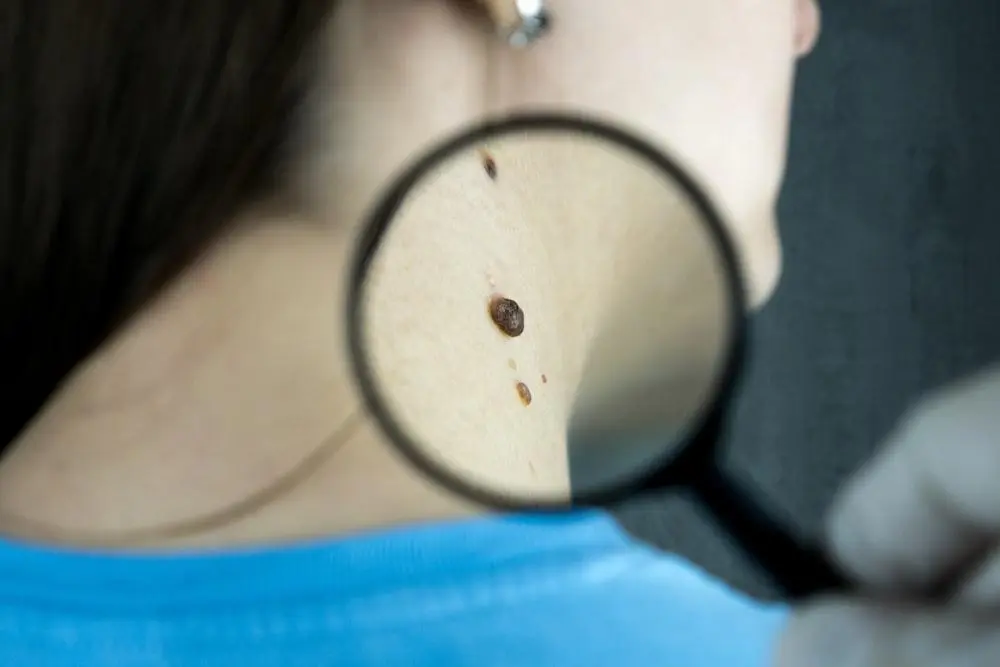
Skin cancer is a serious condition that can affect a patient’s health in many ways. If not detected in time, skin cancer can transform into different types with alarming symptoms that can be fatal. The most common types of skin cancer include basal cell carcinoma, squamous cell carcinoma, and melanoma.
Understanding the skin cancer risk factors can help you opt for early detection and prevent it from worsening. This read will walk you through the common risk factors and shed light on early detection methods.
Risk Factors for Skin Cancer
Skin cancer can occur due to a variety of factors. The causes may vary for each patient depending on their skin type, health, and environment. Going through the following list of risk factors may help you remain cautious.
Exposure to UV Radiation
Prolonged sun exposure is one of the major risk factors for skin cancer. Since sunlight has ultraviolet (UV) radiation, it can impact your skin health. Typically, sun baths and tanning beds increase the chances of UV radiation exposure, leading to skin cancer. When it interacts with the skin cells, the radiation adversely affects them, leading to cancer growth.
Fair Skin and Light-Colored Eyes
People with fair skin and light-colored eyes are more likely to be at risk of skin cancer. Such people have less melanin, which provides natural protection against UV exposure. When fair-skinned people are exposed to the sun for longer, they bear more UV radiation impact than those with darker skin and eye colors.
Family History
Skin cancer can run in families. If anyone in your family has a history of skin cancer, the risk automatically increases for other people in the family. Going for periodic checkups can help you stay ahead of cancer development.
Atypical Moles or Moles
People with moles or atypical moles are more likely to be at risk of skin cancer. The risk multiplies for those with larger and irregular moles on different parts of the skin. While true, not all moles may expose you to skin cancer risk. Checking with your dermatologist may help you determine the risk factor.
Weakened Immunity
People with weakened immunity are more likely to develop skin cancer. For instance, patients with an organ transplant history may have a higher risk of developing cancer. Moreover, HIV/AIDS carriers are at a high risk of skin cancer development.
Exposure to Certain Chemicals
Depending on radiation exposure, people working in chemical laboratories are more likely to develop skin cancer. For instance, exposure to arsenic can increase the risk of skin diseases and cancer development in certain patients. Going for periodic checkups can help such people detect cancer growth in the early stages.
Age
Some people have an increased risk of developing non-melanoma skin cancers as they age. Cancer development may be due to poor health history, skin diseases, or harmful exposures.
How to Detect Skin Cancer in Early Stages?
Skin cancer can be cured if it is detected in early stages. Since cancer growth is often asymptomatic, a lot of patients fail to cure their condition due to late diagnosis. If you want to be cautious and prevent cancer development, the following early detection methods can help you.
Regular Skin Exams
Skin exams are one of the simplest methods for early detection. You can opt for a self-exam or seek a dermatologist’s help. To perform skin exams, you may check your skin every month for mole development, freckles, and new growths. This practice especially comes in handy when you have sensitive skin or a skin condition that may lead to patches and blisters.
Seeking a professional’s help can be a better option since they can easily examine the areas on your body that you might not be able to check.
ABCDE Rule for Melanoma Detection
The ABCDE rule for melanoma detection is an effective technique to detect cancer development in the early stages. ABCDE stands for Asymmetry, Border irregularity, Color variation, Diameter larger than a pencil eraser, and Evolving size, shape or color. These parameters can help you determine whether you are at risk of cancer growth.
A dermatologist can help you achieve this test effectively. They have proper examination instruments to ensure foolproof cancer detection.
EFG Rule for Melanoma Detection
Another effective technique for melanoma detection is the EFG rule. This rule refers to Elevated, Firm to the touch, and Growing. Dermatologists use this method to detect the growth of melanoma skin cancer in patients at earlier stages.
By careful examination of the growth’s size and firmness, skin care experts prescribe appropriate treatments to capture cancer growth and eradicate it from healthy skin cells.
Persistent Skin Changes
An alternative approach to skin cancer detection is carefully observing persistent skin changes. These may include patchy skin, redness, unhealed sores, and shiny bumps. If you notice such signs, you may immediately seek your doctor’s help in ruling out cancer development.
Dermatology experts can help you better understand the causes of each symptom when aiming for early detection. Please note that other skin diseases, like dermatitis, also have similar symptoms in most patients.
Track Changes Over Time
Many skin cancer patients fail to detect cancer growth in the early stages due to a lack of evidence. It may be difficult for some people to keep track of long-term skin changes. A good rule to track skin changes over time is to take clear photographs of different body parts. It is an effective technique to determine how good or bad your skin health is.
Seeking a dermatologist’s help in this regard can save you from regrets. You can reach out to a dermatology practice in your area to track skin changes.
The Takeaway
The above details highlight the most common skin cancer risk factors and early detection techniques. Keeping this information with you can help you avoid skin health problems in the long run. If you need professional help with skincare and cancer detection, Suncoast Skin Solutions can help you. Our team of expert dermatologists can effectively diagnose skin problems and advise you on the best treatment options. Contact us today to schedule your appointment.
SunCoast Skin Solutions Dermatology offices are located in Tampa / Hillsborough, St. Pete / Pinellas County, Brandon, Lutz, Winter Haven, Largo, Hudson, Leesburg, Jupiter, Lecanto, Riverview, Brooksville, Clearwater, Ocala, Palm Harbor, Daytona Beach, Sarasota, Punta Gorda, Seminole, (Inverness, Port Charlette, Port Saint Lucie coming soon), Florida. Contact us at 1-844-786-3376 or click here.

Recent Comments